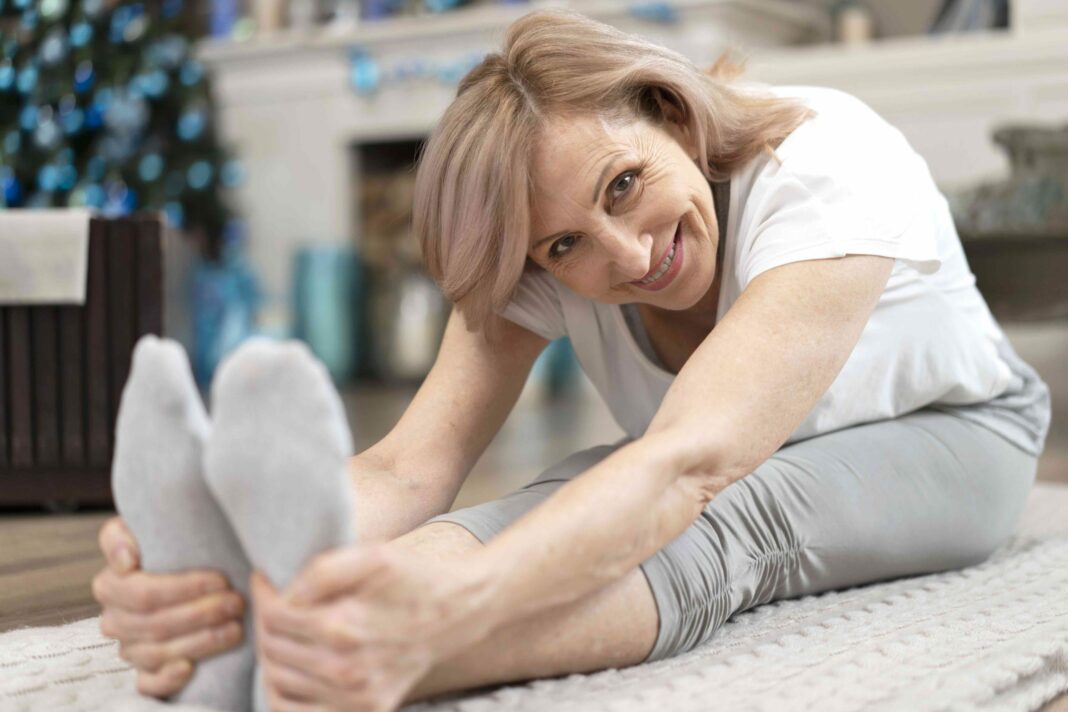We see many women at our podiatry clinics every day in Linden Park, Stirling and Mt Barker to help them through perimenopause and menopause, and the impact this has on their feet.
During menopause one of the most significant changes is the decrease in production of progesterone and oestrogen which are the hormones that regulate muscle mass and strength. This impacts the tendons and connective tissue in the feet and may be causing pain or discomfort.
Here are some of the common problems experience during perimenopause and menopause.
1. Cracked skin on heels
During menopause the skin changes and retains less moisture. You may experience drier skin on your face and body. In the feet this shows up as dry and cracked heels. If the dry skin on your heels is not managed, it can lead to deeper cracks and potentially infections.
What to do: Use a pumice stone or heel file in the shower every day to gently remove hardened skin and moisturise with a heavy cream which you can find at the local chemist. There are creams made especially for the feet. Soaking the feet weekly will also help to soften the skin and make it easier to remove dead skins with a pumice stone. Follow a soak with a good massage using a heavier moisturiser and put on a pair of socks afterwards to keep the feet warm and allow the moisture to penetrate deeply. It’s also a great self care tip, and your feet will love you for it.
2. Arch pain
Menopause may cause weight gain and even a little extra weight can place a greater burden on the feet, leading to calluses and aches. Reduction in oestrogen also causes softening of the tissues of the arches which may weaken or flatten them. Menopause can also aggravate conditions such as plantar fasciitis.
What to do: Using orthotics is an effective way to alleviate arch pain as well as plantar fasciitis. The local chemist sells a range of general use orthotics, but we recommend custom-fitted orthotics to suit the shape of your feet and to support your legs, hips and spine.
Wearing supportive shoes will make a difference in the way your feet feel day to day and alleviate the effects of plantar fasciitis. We can recommend a range of runners and other brands of shoes to help your feet stay in good shape through menopause.
3. Big toe stiffens
Arthritis of the big toe is called “Hallux rigidus” and can occur due to the deterioration of the joint with age. It affects more women than men.
The big toe can become very stiff and sore especially when getting up from a squatting position, walking or any activity that requires the big toe to bend. If you have a bunion, this can cause even further pain during menopause as you are dealing with the bunion itself as well as inflammation in the big toe joint.
What to do: Change to footwear that avoids any pressure on the big toe.. Call us at the clinic to arrange an appointment as arthritis may need different treatment depending on how far advanced it is. Treatments such as manual therapy to improve the range of motion and strapping or taping to minimise movement and reduce pain may be recommended.
More information:
4. Burning feet
A common problem for women during menopause is burning feet at night due to temperature changes and fluctuations. It can also be brought about by dehydration.
What to do: Drink plenty of water – 8 glasses or 2 litres – during the day to stay hydrated. Remember the body retains less water as you get older, so it is even more important to keep your cells hydrated.
5. Pain in the balls of the feet
Have you noticed more discomfort in the balls of your feet? The balls of your feet are protected by a thick cushioning layer of connective tissue which protects the bones and joints of your feet from friction and pressure. With age and menopause, this cushioning deteriorates so that you feel the pressure on your feet more.
What to do: Wear supportive shoes to provide an artificial layer of cushioning. This will protect the bones and tendons in your feet providing you more comfort all day, and will also reduce the breakdown of this cushion layer further because of pressure.
Make an appointment with the Sanders Podiatry team
Let us help you through this transition in your life with some professional advice and tips on how to look after your feet during menopausal changes. Our podiatry clinics are located in Linden Park, Stirling and Mt Barker.
Image by LipikStockMedia on Freepik
